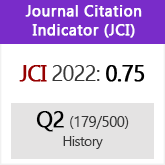The ‘Junta de Dependencias de Extranjeros’ (1714-1800): The socio-political background of a historical institution
DOI:
https://doi.org/10.3989/hispania.2009.v69.i232.108Keywords:
Junta de Dependencias y Negocios de Extranjeros, Foreign merchant communities, History of Commerce, Modern Age, Eighteenth century, InstitutionsAbstract
This paper sets out to analyze the Junta de Dependencia de Extranjeros, an institution that was created within the framework of the government reforms that characterized the reign of Phillip V after the war of Spanish succession in order to monitor and control the activity of foreign merchants settled in numerous Spanish cities. During its operative period this institution developed a strong links and effective lines of communication with foreign merchant communities resident in Spain. This study is based on primary sources such as the documentation generated by the Junta, which included requests and complaints lodged by merchants and merchant communities as well as reports on the appointment of foreign consuls. These sources are preserved in the State sections of the Archivo Histórico Nacional de Madrid and the Archivo General de Simancas. The correspondence of the representatives of merchant communities in Spain has also been used, as well as affidavits and population censuses preserved in the Provincial Archives of Madrid, Cadiz and Murcia. These sources have been interrogated in order to establish the stances and discourses adopted by both the Spanish government and the foreign merchants settled in those cities that sent representatives to the offices of Spain’s central government. The requests and complaints filed by foreign merchants and consuls in this context demonstrate the strength of their communities, which had been granted substantial privileges during the second half of the seventeenth century, and to which the Junta responded with a high degree of understanding. The Junta’s conciliatory stance was linked not only to pressure exerted by foreign ambassadors, but also to limitations established by the peace treaties signed by Spain. The Junta de Dependencia de Extranjeros clearly adopted a radically different position to that of Charles II’s fiercely protectionist government, and generally responded favourably to requests from foreign merchants relating to tax exemptions and the defence of commercial practices. These foreign communities can be regarded as autonomous entities that were detached from their respective countries of origin and enjoyed a great deal of influence at the royal court and within its lobbies.
Downloads
Download data is not yet available.
Downloads
Published
2009-08-30
How to Cite
Crespo Solana, A., & Montojo Montojo, V. (2009). The ‘Junta de Dependencias de Extranjeros’ (1714-1800): The socio-political background of a historical institution. Hispania, 69(232), 363–394. https://doi.org/10.3989/hispania.2009.v69.i232.108
Issue
Section
Studies
License
Copyright (c) 2009 Consejo Superior de Investigaciones Científicas (CSIC)

This work is licensed under a Creative Commons Attribution 4.0 International License.
© CSIC. Manuscripts published in both the printed and online versions of this Journal are the property of Consejo Superior de Investigaciones Científicas, and quoting this source is a requirement for any partial or full reproduction.All contents of this electronic edition, except where otherwise noted, are distributed under a “Creative Commons Attribution 4.0 International” (CC BY 4.0) License. You may read here the basic information and the legal text of the license. The indication of the CC BY 4.0 License must be expressly stated in this way when necessary.
Self-archiving in repositories, personal webpages or similar, of any version other than the published by the Editor, is not allowed.














